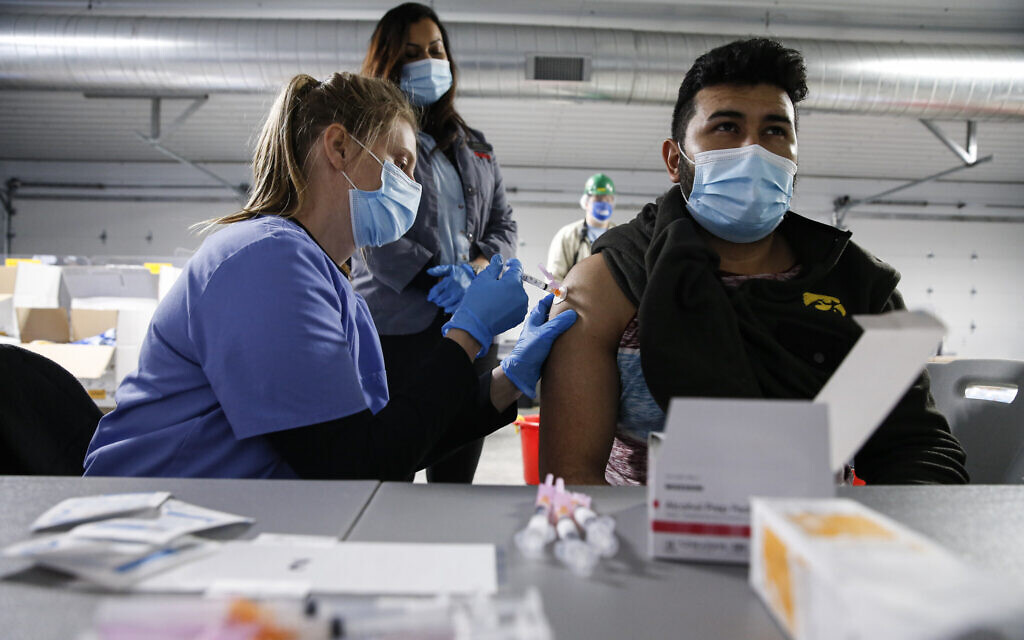Vaccinated people are much less at risk of COVID-19 infection before they even receive their second dose, a new US study has found, supporting Israeli research on one of the most burning international vaccine issues.
The Mayo Clinic figures showed the same rate of effectiveness as those released by the Sheba medical center in Tel Aviv, and still show that the vaccine’s ability to protect against infections increases over time, even after just the first dose.
The Minnesota-based clinic, in a study of 31,000 people in four U.S. states who received at least one injection of vaccine, found that inoculations were 75% effective 15 days after the first injection and about 83% effective 36 days after injection. first injection.
Get the daily edition of The Times of Israel by email and never miss our top news.
The number, reflecting symptomatic and asymptomatic diseases, rose to 89% (36 days after the first dose) for people who received both doses.

Vial of Pfizer-BioNTech vaccine against COVID-19 taken at Clínica Versalles, in Cali, Colombia, in the midst of the new coronavirus pandemic on February 19, 2021. (Luis ROBAYO / AFP)
The study, which has not yet been peer-reviewed, included people who received the Moderna or Pfizer vaccines.
The Mayo Clinic study supported Israeli research launched last week, which found that the Pfizer vaccine is 75% effective in preventing infection two to four weeks after a single injection.
The Israeli study focused on statistics for symptomatic carriers, meaning those who did not feel well, and found that a single dose is 85% effective two to four weeks later.
In some countries that rush to vaccinate large populations, doctors are discussing whether to delay the second injection so they can give partial protection to more people with one injection. The UK has taken this approach controversially, despite some concern in the medical profession.

Sheba Medical staff members receive the second round of the COVID-19 vaccine at the Sheba Medical Center outside Tel Aviv, January 10, 2021. (Miriam Alster / Flash90)
Vaccines have been shown to be highly effective in reducing symptomatic COVID-19 and mortality, but there is still a dearth of data on whether they prevent transmission and can stop the virus from circulating within a population.
The question is crucial because most of the population in the United States and the world remains unvaccinated and other groups, especially children, are not eligible for vaccines.
While there is solid data from the Phase 3 trials of the Pfizer-BioNTech vaccine, and since, showing that vaccinated people are much less likely to become verified COVID-19 carriers, clinical trials have not produced robust results on whether those who are vaccinated will still spread the virus.
